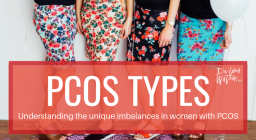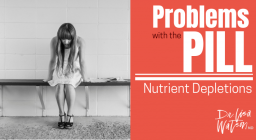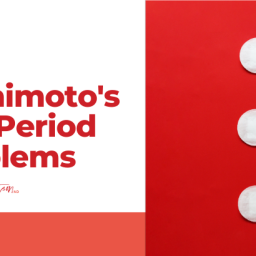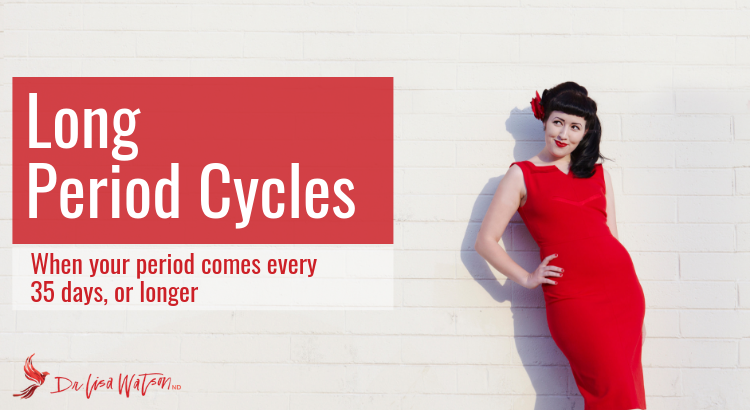
It may sound lovely to not have a period every month, but not knowing exactly when your next period is coming can make each day feel like a lottery you aren’t very excited to win. When your period cycle lasts for more than 35 days, then you have a long cycle. For some women they may miss a period all together, and have a cycle that lasts between 50-60 days, and other women may just have very late periods, coming after 35-45 days.
So what does it all mean? Why do some women experience long period cycles? And is it something to be concerned about?
A Menstrual Cycle Refresher
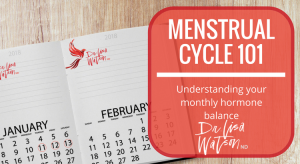 Your period cycle begins on the first day of your period. The first half of your cycle is dedicated to developing an egg, and is known as the follicular phase. In the first half, estrogen levels rise and cause the lining of your uterus to develop and grow. The second half of your cycle, starting at ovulation, is known as the luteal phase, and is dominated by the production of progesterone. Progesterone consolidates the lining of the uterus, making it ready to accept a fertilized egg. If that doesn’t happen, progesterone levels drop and your period begins again.
Your period cycle begins on the first day of your period. The first half of your cycle is dedicated to developing an egg, and is known as the follicular phase. In the first half, estrogen levels rise and cause the lining of your uterus to develop and grow. The second half of your cycle, starting at ovulation, is known as the luteal phase, and is dominated by the production of progesterone. Progesterone consolidates the lining of the uterus, making it ready to accept a fertilized egg. If that doesn’t happen, progesterone levels drop and your period begins again.
Long Period Cycles vs. Amenorrhea
Long period cycles are cycles that last longer than 35 days, but less than three months. After 3 months without a period, you will be diagnosed with secondary amenorrhea (if you previously had regular cycles).
It is important to see your doctor, or your Naturopathic Doctor, if you go more than three months without a period. After three months without a period we often recommend an ultrasound to ensure that your uterus lining isn’t getting too thick – a condition known as endometrial hyperplasia – that can rarely lead to uterine cancer.
Causes of Long Period Cycles
No one likes it when I drop the “C” word, so I’ll just start by saying that the vast majority of cases of long period cycles are caused by totally benign conditions, and most are caused by hormone imbalances. Below are the most common causes:
- Pregnancy – If you haven’t had a period arrive on time, the first thing you should do is run a pregnancy test. But you didn’t need me to tell you that.
- Continuous birth control pills – Continuous use birth control pills will cause you to have a period only every 3 months. Or if you use your birth control pills continuously without taking the sugar pills you will also delay your period.
- Polycystic ovarian syndrome (PCOS) – The most common cause of long period cycles, aside from the obvious answer of pregnancy, is PCOS. Impacting up to 10% of women, PCOS can delay ovulation or prevent it from happening all together. This causes characteristic hormonal imbalances and prolonged period cycles. If you suspect you may have PCOS, it is recommended to get diagnosed and have hormone testing done.
- Hypothyroidism – A sluggish thyroid can cause irregular periods. The thyroid influences the way the ovary responds to hormones and a slow thyroid can delay ovulation and lead to long period cycles. A simple blood test can identify if you have a thyroid hormone imbalance.
- Stress – No hormone acts in isolation. The hormones that influence our stress cycle, especially cortisol, can influence our period cycles as well. If you are experiencing high levels of stress, or even moderate stress for long periods of time, it may be impacting your periods and you should seek support for it.
- Perimenopause – The hormonal changes that occur in perimenopause can cause women to have periods that are short, long, heavy, light, and everything in between. Because we ovulate with less consistency in our 40s, it is normal for our period cycles to change month by month.
- Teens – It takes up to 6 years for a girl’s periods to become regular, so for a teens it is normal for them to miss a period or have a long menstrual cycle at times. While the birth control pill is most often recommended for girls to regulate their cycles, teaching our teen girls more about their hormones and menstrual cycles can empower them to understand what is happening and learn strategies for pregnancy prevention and hormone balance without the pill.
When To Get Help
If you previously had normal cycles, and haven’t had one in three months (and you aren’t pregnant) then it is a good idea to see your doctor for an ultrasound and a hormone panel. If we can determine why your cycles are long, we can do something about it! And keep in mind – the pill isn’t the answer for everything. If you want to really regulate your cycles, the pill isn’t going to do that for you. It will give you a regular “period”, but won’t change the underlying cause that led to long period cycles. It will only mask what is truly happening. Working with a Naturopath can help you to achieve balanced hormone levels, and perfect periods, naturally.
Disclaimer
The advice provided in this article is for informational purposes only. It is meant to augment and not replace consultation with a licensed health care provider. Consultation with a Naturopathic Doctor or other primary care provider is recommended for anyone suffering from a health problem.



